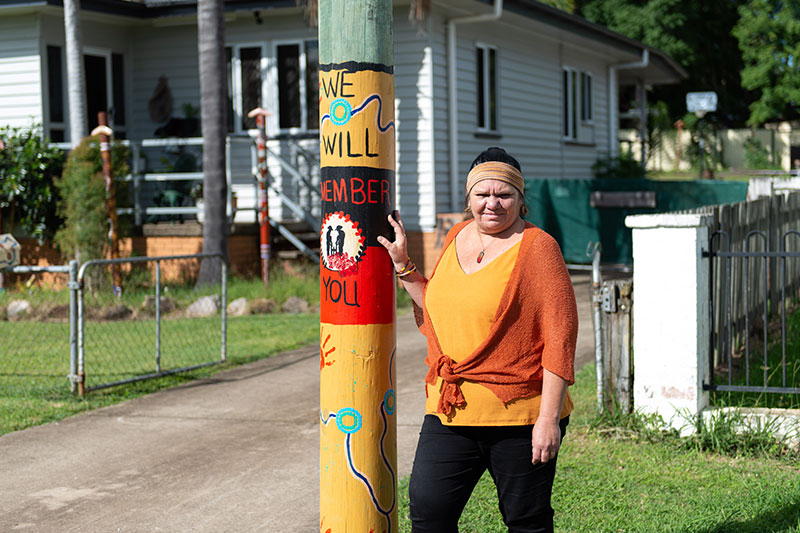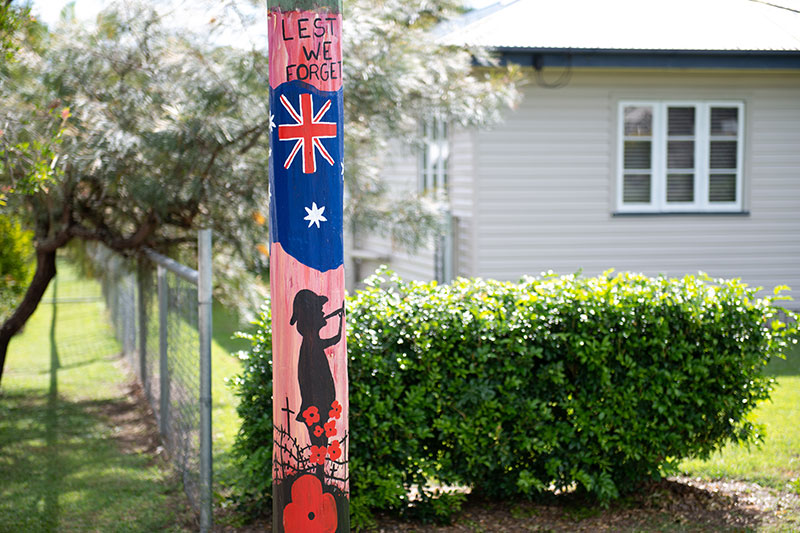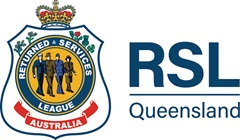
Indigenous artist transforms ANZAC Day in Beaudesert
12 May 2022- First Nations
- ANZACspirit
- Ideas & info
- History & commemoration
As we approach National Reconciliation Week, we look back to 2020 and a Beaudesert Indigenous artist who found a new spirit of remembrance through art.
Kim Brolga Williams, a proud Kullilli-Wakka-Wakka woman, has been a practising contemporary artist for more than 40 years. And it was her creativity that saw power poles in the front yards of local veterans turned into one-of-a-kind artworks back in 2020.
“I think that Beaudesert was the only place in Australia that had all these poles decorated,” she says.
“I thought I’d ask my local energy provider if I could paint the electricity pole outside my driveway and I was given approval."

What started with one pole outside her own home transformed into Kim painting 15 poles in 16 days for local veterans. She says the Beaudesert community was behind her at every step.
“This was for all our veterans who have sacrificed for us. They gave up their freedom and this was to give them somewhere they could remember and share the day with loved ones.
“As a mother of six boys myself and a grandmother, I can imagine looking back on this in 10 years’ time with them and know that I gave back to my community,” she says.
“And I hope that they will remember that someone thought of the veterans and gave them somewhere to go for ANZAC Day instead of being at home on their own.”
A PRACTICE TO HONOUR INDIGENOUS IDENTITY
Living and working in Mununjali country, Kim says her creative practice and this project were important demonstrations of Indigenous identity.
“It was important as I was painting the poles that I am an Aboriginal woman and I’m painting these not only for my Aboriginal and Islander people but for the whole of Australia to recognise that they all went to war to sacrifice their lives for our land,” she says.

“ANZAC Day for me is important because of my grandparents, my grandfathers, and on my husband’s side, all the uncles and aunties who all went to war at a very young age to fight for freedom and their country, their land.”
A TRADITION PASSED DOWN FROM GRANDMOTHER TO GRANDCHILD
For Kim and her family, ANZAC Day holds significant meaning.
“We come from a family that has served in the Army and my husband and I have taken our children to ANZAC Day commemorations and now we’re doing it with our grandchildren. Handing the tradition down to them,” she says.
“It’s important to my husband and I that they know the history. And that when we’ve gone, they will be carrying it on with their children, and then their children.
“Like many Indigenous families, military service is something of a tradition, coming from a long line of warriors. Around 10 years ago when the black Diggers started being recognised, my nephew played the didgeridoo at a Dawn Service,” Kim shares.
“To hear the echo of a didgeridoo in the background with the sun coming up was amazing. Also the eeriest, sacred thing you could ever hear.
“You think of your grandparents, the nurses, everyone who went to war. It gives me goosebumps thinking of it. And if you ever get to go to one where there’s a didgeridoo playing in the background, it’s a beautiful feeling.”
Want to stay informed? Subscribe today and get the latest news, services, events and more direct to your email inbox.
Related News
Loading

